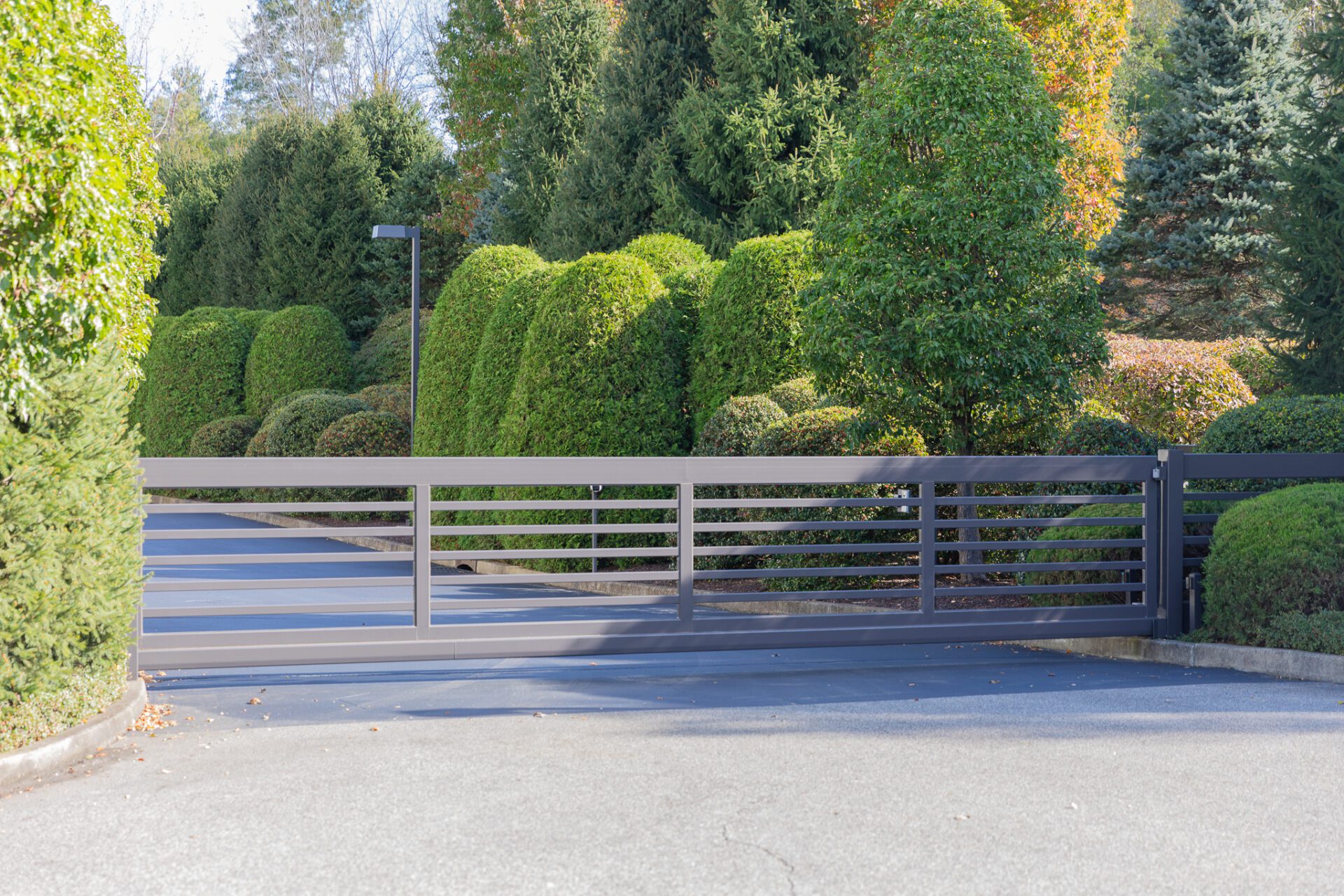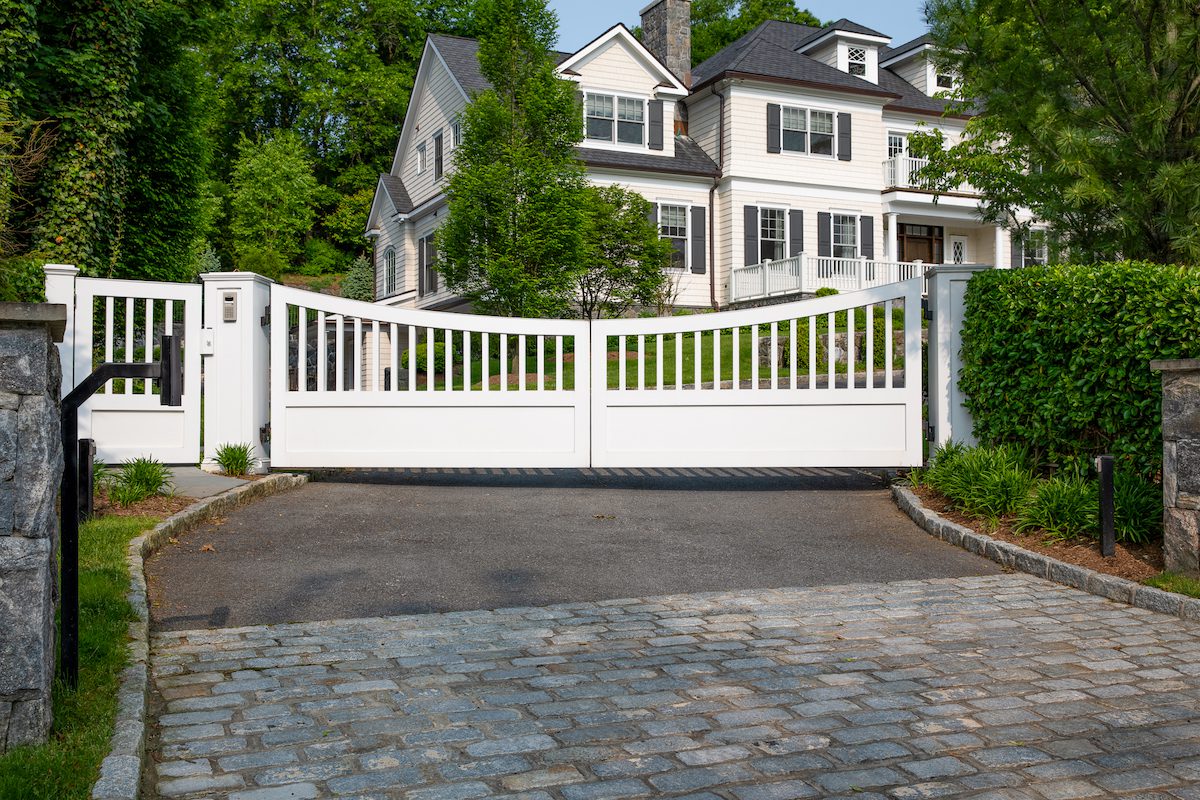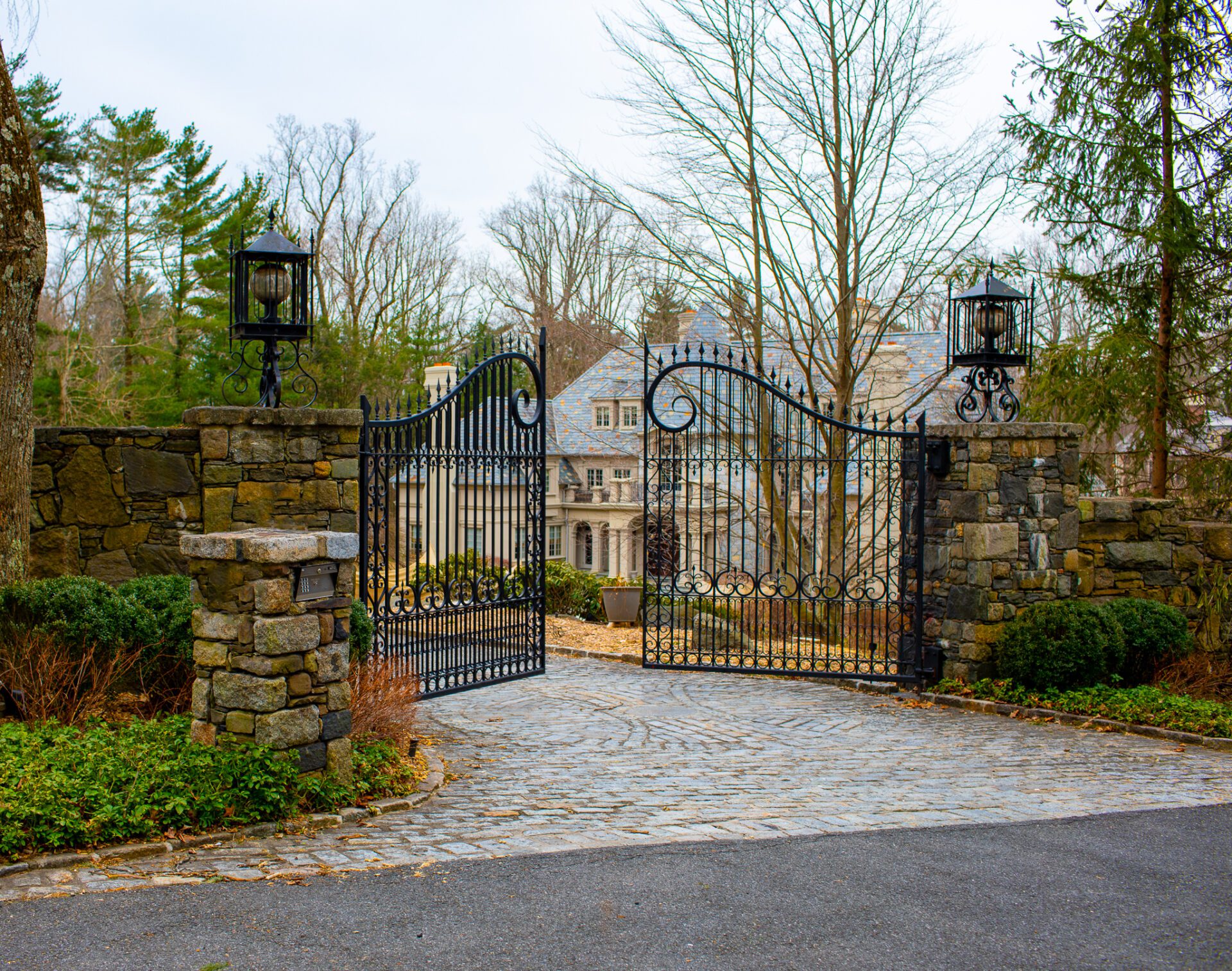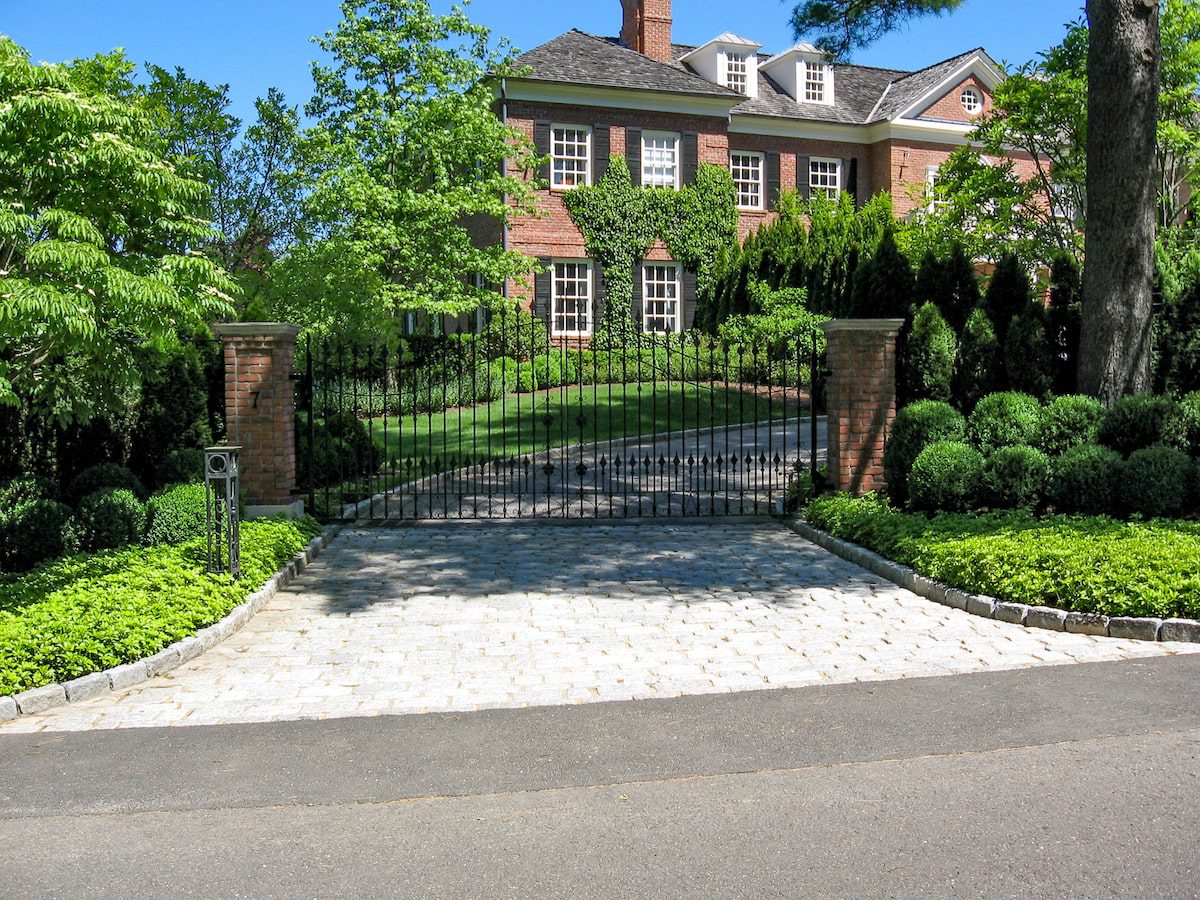When you picture your new automatic driveway gate at the entrance to your property, what do you see?
Perhaps you envision a stately wrought iron gate with a crest or coat of arms at its center. Maybe you imagine a wooden gate that evokes the same textures as the surrounding landscape, as though it were an extension of the trees surrounding it. Maybe you have an idea for a design that you’ve never seen before that our custom craftsmen can make a reality.
But let’s take it one step further: how does that gate open? Often customers imagine a double swing gate that opens inward in the middle. But the mechanism by which your gate opens and closes can be as customized as the rest of the design and it needs to suit the particular features of your property.
That’s why we’re here to introduce you to the ins and outs (or rather the side to sides) of sliding driveway gates.
What are sliding driveway gates?
Sliding driveway gates open by sliding parallel to the walls or fencing on either side of the driveway rather than by swinging open 90 degrees on a hinge. While entry level sliding gates have an exposed roller system, more robust systems will feature a heavy duty hidden roller system, reducing pinch points and helping prevent gate sag over large driveway widths. Usually they open via the movement of a single panel, although sometimes they operate via a two panel system in which one panel slides open to the left and the other to the right.
Benefits of sliding driveway gates
There are a number of benefits to installing a sliding driveway gate instead of one that swings open.
Space efficiency
Since they open and close by moving parallel to the fence line, sliding gates don’t require any additional space in front of or behind them. This is a great option for homes with limited driveway space. Unlike a swing gate that requires a clear path to swing through, with a slide gate you can leave a parked car just past the gate without impeding its travel, which will give you approximately six to eight feet of extra usable driveway space.
Ease of operation
Sliding gates are easy to use: they can be controlled via the same systems used for swing gates, such as in ground vehicle sensors, remote control, keypad, or telephone entry. The mechanism that runs them also has a higher duty cycle than a typical swing gate operator, meaning it can open and close more times per hour before it starts to wear out.
Security
Sliding gates are very difficult to force open, and can also be made to stop certain vehicle impacts, making them a good choice for home security.
Durability
Sliding gates are an especially good choice for windy areas. Think about the last time you were opening your car door on a windy day. A strong wind can grab a hold of that door and swing it open or shut pretty forcefully. The same thing can happen with gates. Depending on how the gate is constructed, the wind can grab it like a sail, causing wear and tear and damaging the mechanism. Sliding gates, however, move on a heavy duty track in a linear motion, which makes it far harder for gusts of wind to disrupt their movement.
Drawbacks of sliding driveway gates
While sliding gates can be an excellent option, they do have some potential drawbacks.
First off, they’re inherently more dangerous than swing gates. While a swing gate would merely push someone standing in the way, a sliding gate closes against a post and can thus potentially crush someone. Consequently, depending on their style and use, sliding gates require additional safety features such as mesh and soft touch safety edges to stop the gate if something is in its path. Also, a fenced area is often installed to block anything getting behind the gate as it slides open.
Secondly, depending on the materials and the level of complexity, along with the additional safety features required, a slide gate will typically be more expensive than a swing gate.
Thirdly, the driveway needs to be level from left to right so that there isn’t a gap underneath the gate. It also requires room either to the right or the left to slide open into, meaning the grade can’t slope up in this area. Any issues with grade, however, can usually be rectified with some light excavation or landscaping work.
How to choose the right sliding driveway gate for your needs
There are a number of factors to consider when you’re determining what sort of sliding driveway gate will work best for your property.
Size and Space
Sliding gates have some very particular space requirements. Typically the gate will need about 150% of the entire width of your driveway available in fence space to the left or right of the driveway (for example, 30 feet on the side for a 20-foot entrance). You can get away with less space if you go with a two panel mechanism, but that will still require space along both the right and left sides of the driveway.
Sliding gates also typically require a flat, level surface for them to move along. If your property has a slope, it may need to be altered slightly to flatten it out.
Design
An entry gate should complement the style of your home and property. From sleek and modern, to traditional and classical, to rustic and rural, we offer custom designs to suit your needs.
Types of sliding driveway gates
There are a few different material options for sliding driveway gates: metal, wood, and composite. Choosing the right material to suit your property and your aesthetic preferences is a critical part of the process. If you’re looking for more information on comparing materials, check out our blog on determining the best material for your entry gate.
Metal Driveway Gates
Metal, be it steel, aluminum, or wrought iron, is a classic choice. Wrought iron in particular is prized for its appearance, its durability, and for the way it showcases your property. It lends itself to eye-catching custom designs, ranging from ornate loops and intricate sculptural patterns to modern lines and sharp, sleek angles. Metal gates can withstand heavy use, harsh conditions, and last for generations with proper maintenance.
Wood Driveway Gates
Wood offers a warm, natural look that takes on a more earthy and rustic character over time as it gracefully ages. At Tri State Gate, we use western red cedar, ipe, and mahogany, which are known for their longevity and their natural resistance to rot. Wooden gates also allow for greater privacy because, unlike most metal gates, they block the viewer’s line of sight to the property on the other side.
Composite Driveway Gates
Composite gates offer many of the same benefits as wood but with less maintenance. They’re less easily damaged by the elements, built around a sturdy steel frame, and, with close-fit panels, they can offer an additional level of privacy for your property.
Sliding driveway gate design ideas
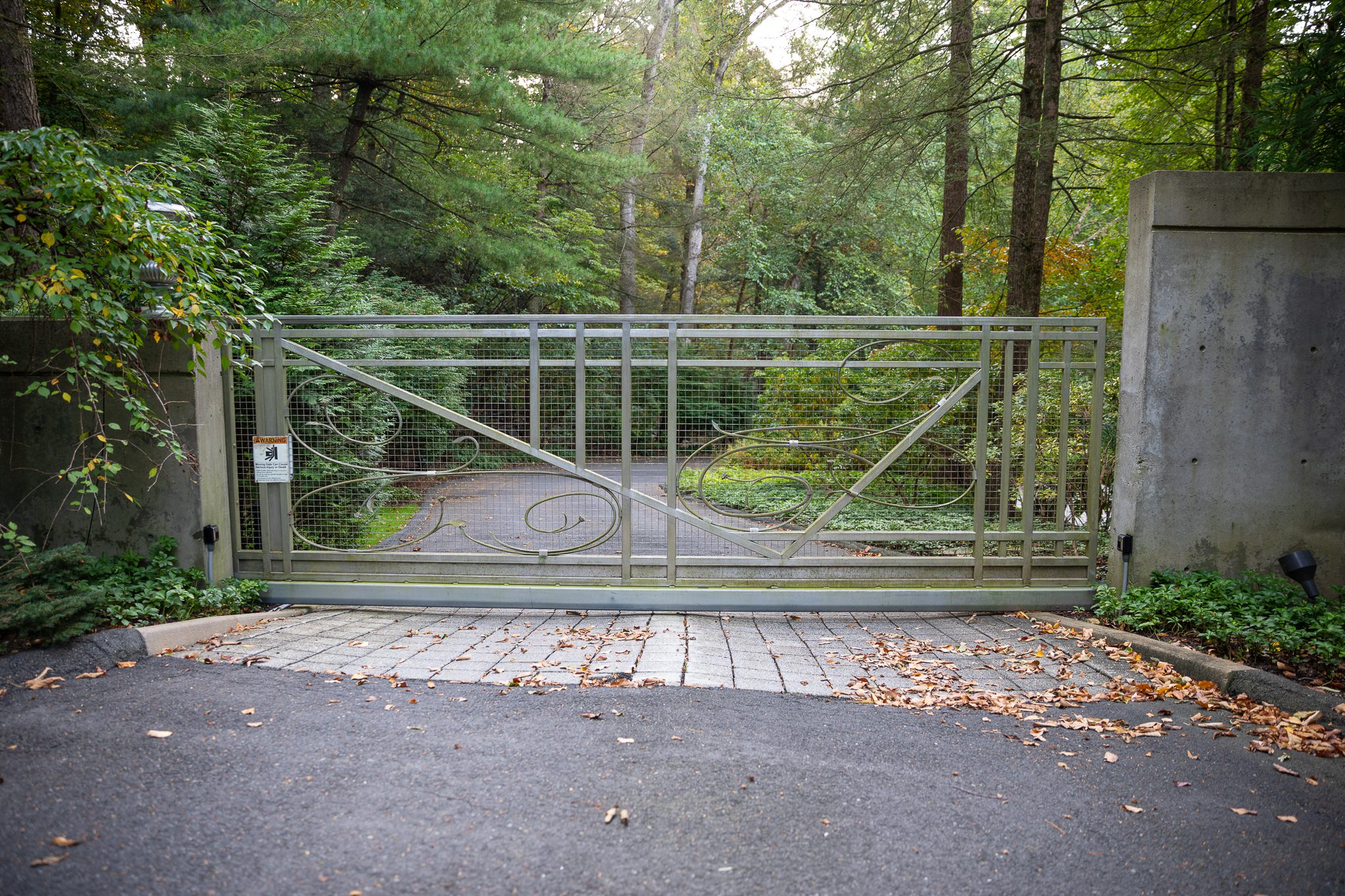
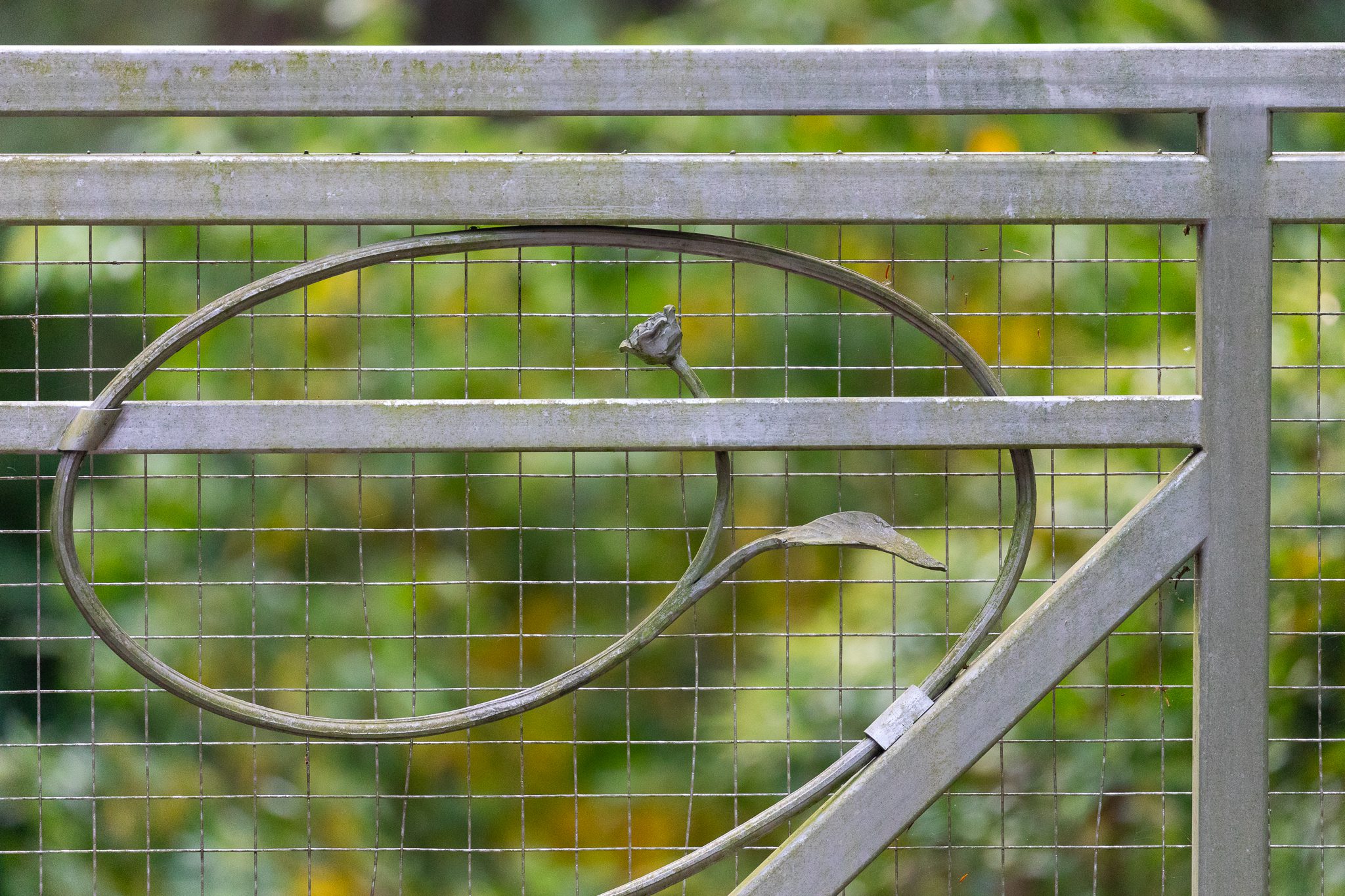
Asymmetric design
This metal sliding gate features an asymmetric design sporting ornamental vines with leaves and flowers at their ends [see the second photo]. A reinforced metal mesh keeps the negative space secure.
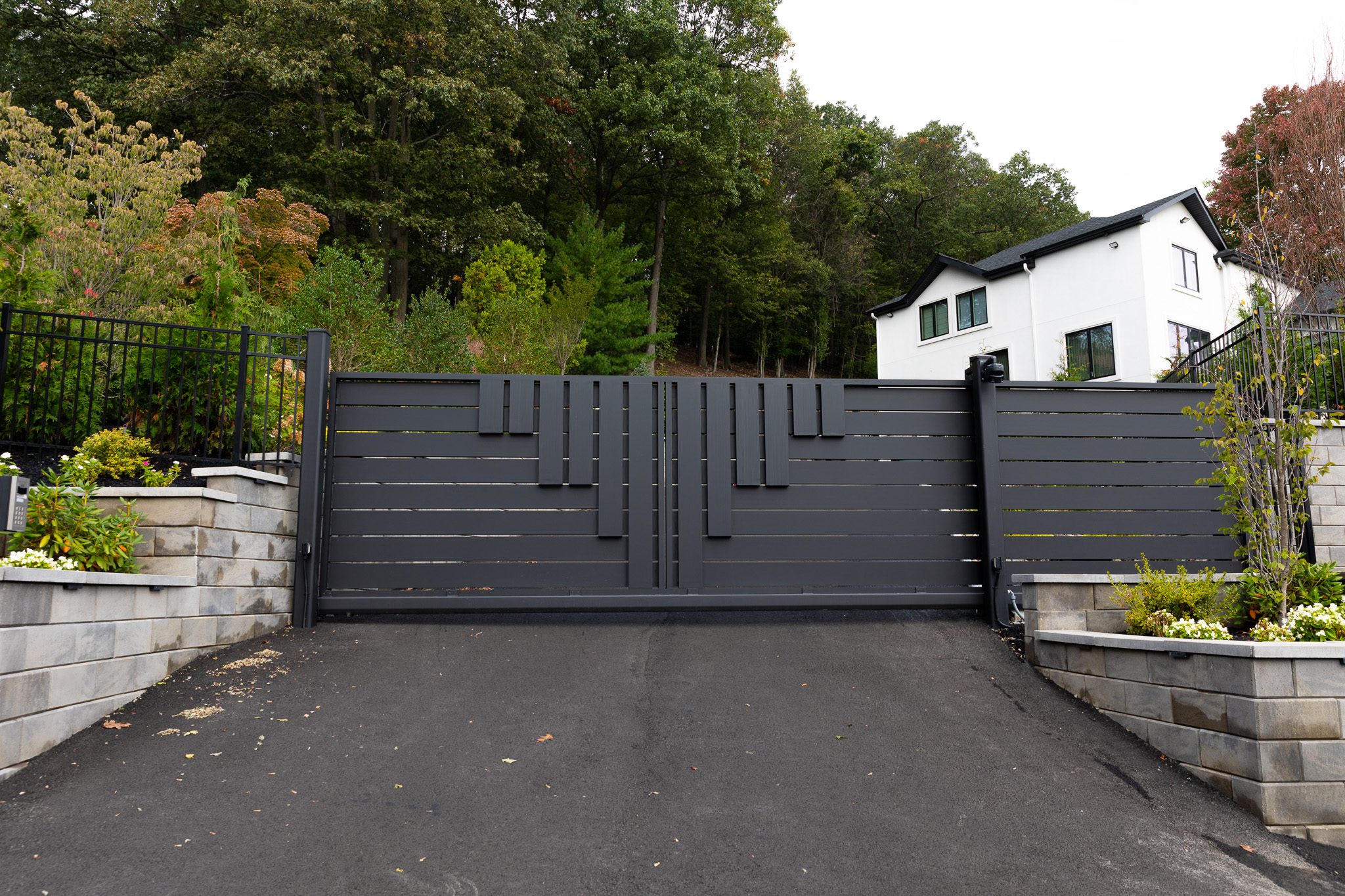
Aluminum sliding gate
This aluminum sliding gate features an abstract waterfall in the middle to offer visual interest while the closely fitted panels screen the driveway from view.
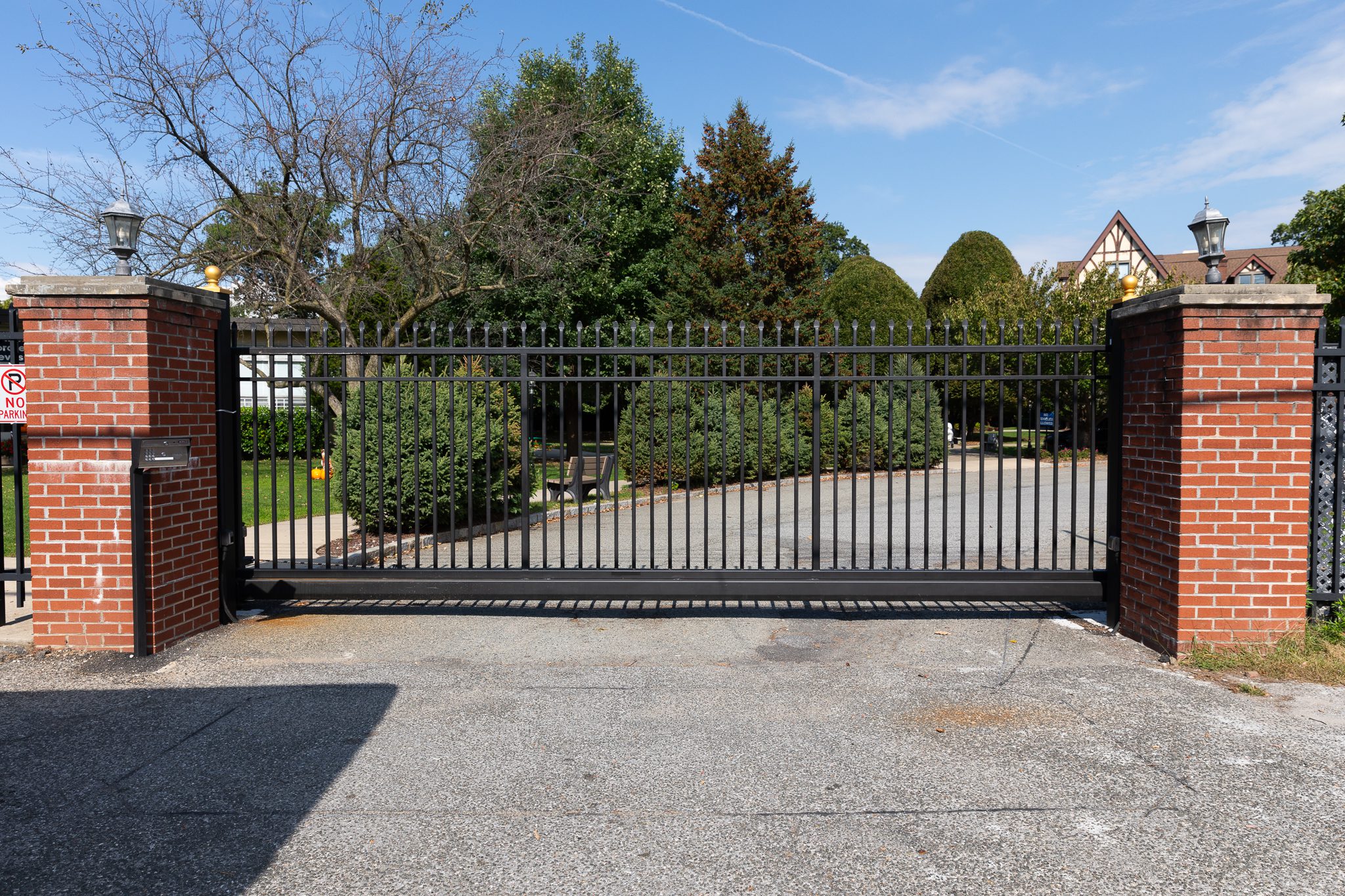
Wrought iron meets modern technology
This wrought iron sliding gate is sturdy and traditional, but its technology is anything but: it uses a heavy duty cantilever system so that it’s suspended above the ground as it moves back and forth into place.
Professional sliding driveway gate installation
At Tri State Gate, we stand behind the work we do. For over 25 years, our company has specialized in designing, installing, and maintaining beautiful, dependable, and fully customized gates in the greater New York metropolitan area and beyond. And with the FBI and the Department of Homeland Security among our customers, you can rest assured that we’re as responsive to your concerns about security as we are to your aesthetic needs.
Contact us to set up a free on-site consultation.
Sliding driveway gate FAQs
What is the best material for a sliding driveway gate?
The choice between metal, wood, or composite materials for your sliding driveway gate comes down to your own aesthetic preferences, your privacy and security needs, and the fit with the rest of your home and property. At Tri State Gate we’re determined to make your vision a reality.
How much does a sliding driveway gate cost?
A lot of variables affect the price of your gate: the material you choose, the custom design you select, the complexity of the mechanism, and any additional work that’s required on the property in order to prepare it for installation. To get an estimate, call us at 914-244-0018 or email us at info@tristategate.com.
How do I install a sliding driveway gate?
Installing a sliding driveway gate is a complex task that should be done by a professional. At Tri State Gate, we offer free on-site consultations so we can determine what styles, materials, and mechanisms would work best for your property. Our installation team is thorough and efficient, and we provide long-term maintenance contracts and 24/7 emergency service technicians ready to respond day or night.
How do I maintain a sliding driveway gate?
Keeping a sliding driveway gate in good repair requires regular maintenance, such as lubricating moving components, testing the electronics, and adjusting tension on the stainless steel drive chain. At Tri State Gate, we offer regular maintenance contracts to our customers, and we’ll provide service even for gates we didn’t install.

